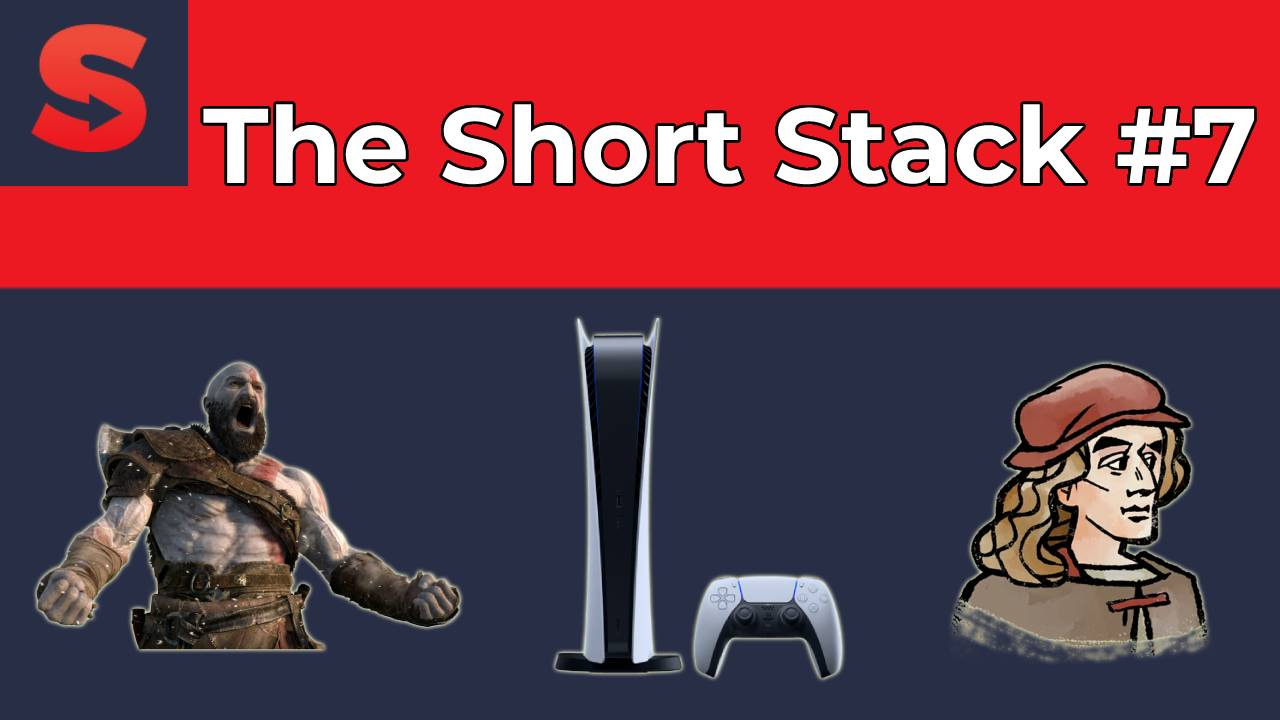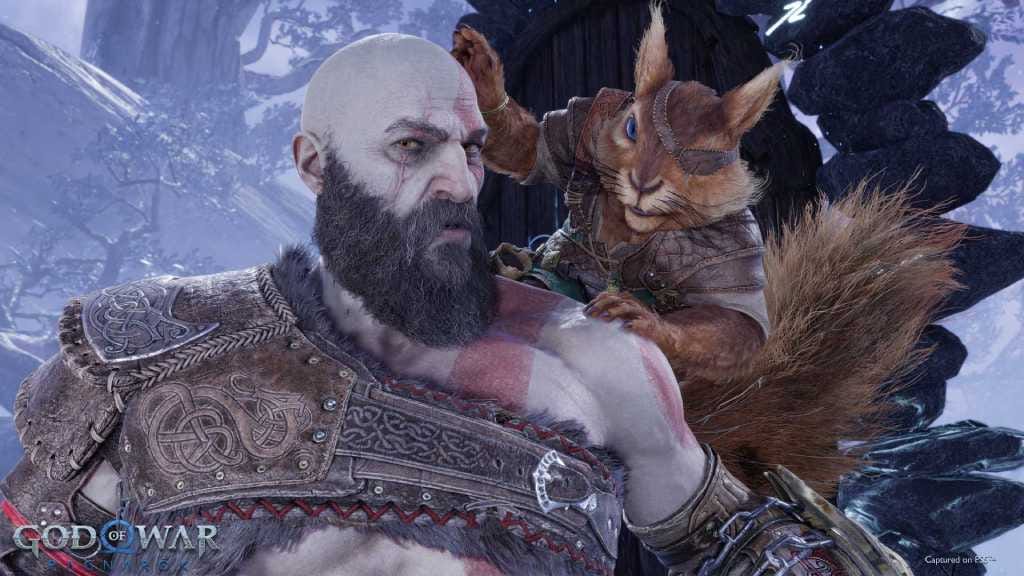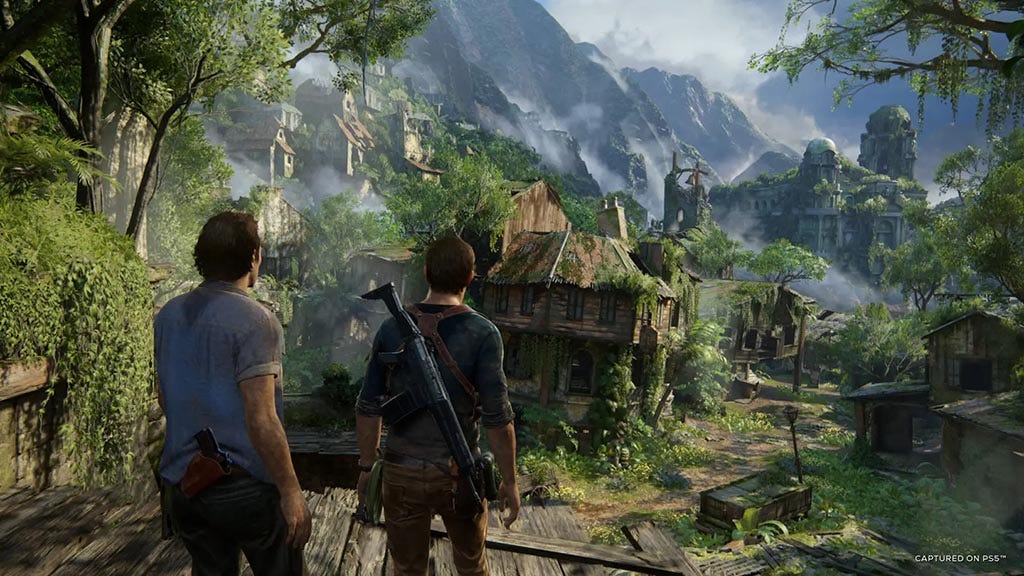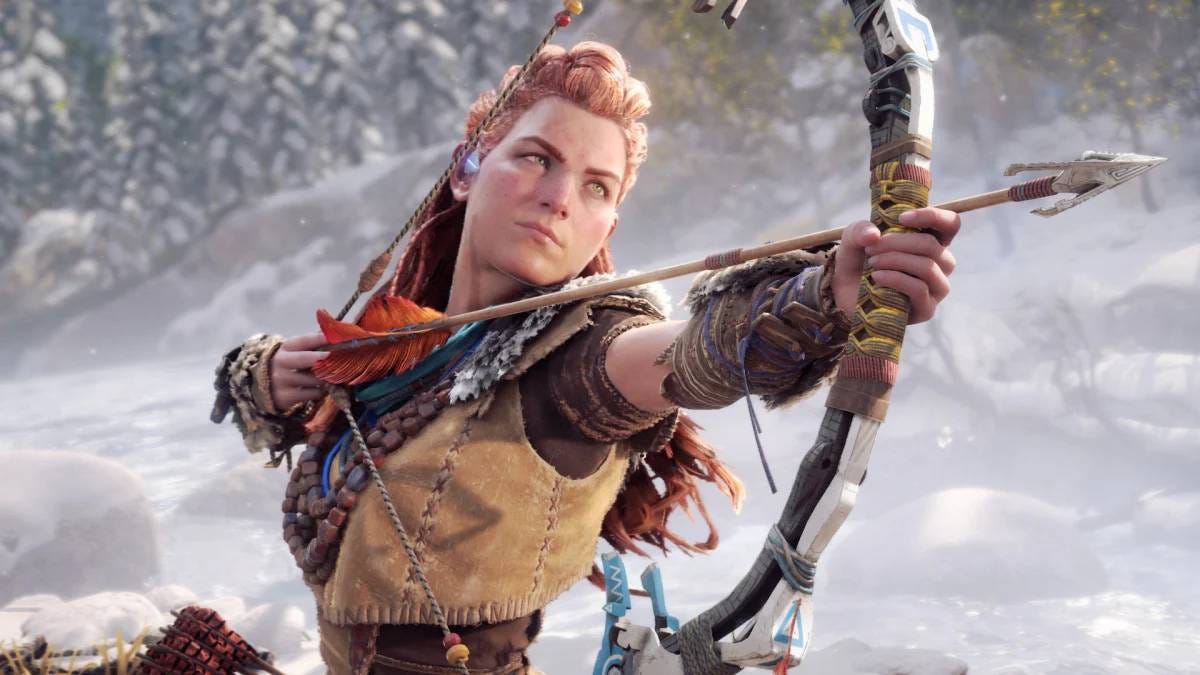The problem with God of War Ragnarok and Sony first-party PS5 games: The Short Stack #7
Playing the best PS5 games is starting to feel like a bad case of deja vu
Hello, Shortcut crew! I can’t believe it’s been nearly two months since The Short Stack #6 and my word, how things have changed since then.
We’ve gone from a team of two to seven as we pave a new path for journalism. We’ve added some incredibly talented people to the site, and you’ll have already seen the short-term impact that’s made in regard to the amount of new content that goes up each day.
Having more hands on deck also means we’re able to invest more time into creating comprehensive buying guides like the best Nintendo Switch games and best PS5 headsets, so expect more round-ups and expert advice to help you find the right product.
Our Black Friday deals coverage is also well underway this year, so make sure you follow Matt Swider on Twitter to snap up all the best offers during November’s sales extravaganza. We’ll be rounding up some of the most enticing deals right here on the site, too, like the best Walmart Black Friday deals and Black Friday Nintendo Switch deals.
For the players 🤔
But that’s enough catching up for now. What I really wanted to talk about in this episode of The Short Stack is Sony’s first-party games. And more specifically, how God of War Ragnarok made me realize that I’ve started to grow tired of the company’s blockbuster games.
In my God of War Ragnarok review, I couldn’t shake the nagging sense that I was retreading the same steps I’d already walked before. It wasn’t just because the game makes you revisit the memorable places from God of War (2018) or the fact it’s largely identical in terms of gameplay structure.
No, it’s more that God of War Ragnarok and the rest of Sony’s first-party portfolio feel undeniably similar and I can’t help but feel I’ve overindulged on this extravagant main course one too many times.
Before you turn your back on me in disgust, let’s take a look at a selection of Sony games in recent years and see if you can notice a pattern that has become patently obvious to me, at least.
Horizon Forbidden West is a third-person, narrative-driven adventure game set in an open world. Ghost of Tsushima is a third-person, narrative-driven adventure game set in an open world. Spider-Man: Miles Morales is a third-person, narrative-driven adventure game set in an open world.
Let’s take a look at a few more, shall we? Days Gone is a third-person, narrative-driven adventure game set in an open world. The Last of Us Part 1 is a third-person, narrative-driven game that’s more linear in scope. The same is true of The Last of Us 2, Uncharted: Legacy of Thieves Collection, God of War (2018), and God of War Ragnarok.
The pattern is obvious.
A well-oiled machine 🛢️
This might seem like a rather rudimentary way of classifying these titles, but it’s unfortunately a factual one. Sony has settled on a genre and seemingly refuses to budge.
However, to make matters worse, I’ve also started to notice more instances of shared mechanics across Sony’s first-party lineup, which only reinforces that feeling of deja vu.
Cross-pollination, let’s call it, is bound to happen as studios share their ideas in-house and see what players enjoy. I get that and, in many ways, welcome it. But sometimes sharing ideas can stifle innovation.
One of my favorite Sony franchises, Uncharted, was the first jewel in Sony’s crown that introduced free-flowing climbing mechanics or, at the very least, set the standard. You could point the finger at Uncharted for establishing the whole third-person, narrative-driven foundation that has become the standard for Sony, but I digress.
Climbing in Uncharted made sense for a game that revolves around exploring dilapidated buildings, scaling 100-foot cliff faces, and using cover and verticality as part of the core gameplay loop. But this simple act has now made its way into multiple Sony games in a big way.
Horizon Forbidden West built upon the climbing mechanics already present in Horizon Zero Dawn, but you’ll also clamber many a craggy wall in Ghost of Tsushima, a game where you play as a samurai in Feudal Japan. Was that really necessary?
Frequent climbing sections are also present in God of War Ragnarok, as they were in God of War (2018), with every handhold conveniently painted to assist you along the way. For a game that is largely a linear experience, it just seems tacked on.
I can already feel some of you getting aggrieved that climbing is such an issue for me, but there are more examples of shared mechanics, like the humble bow and arrow. Getting even angrier?
Yes, no game can safeguard a weapon but you’ll be pulling back a bowstring and firing arrows in Horizon Zero Dawn, Horizon Forbidden West, Ghost of Tsushima, The Last of Us Part 1 and The Last of Us 2, and even – to my surprise – God of War Ragnarok when you play as Atreus. It’s a minor grievance but one that isn’t lost on me, sadly.
Okay, let me mention one more trend that I’ve noticed which has thankfully drawn the ire of other players online: characters monologing as a means to guide you through every puzzle or obstacle. Horizon Forbidden West was the biggest offender of this, with Aloy commenting on every single she did or planned to do in the game. And it became tiresome, fast.
But even God of War Ragnarok adopted this hand-holding approach, with every puzzle being solved by your party before you even have a chance to fire off your synapses and figure it out for yourself. Two Sony first-party games released this year that exhibit the exact same design decision? That’s not a coincidence – it’s expected at this point.
An overreaction? 🤨
Taken in isolation, these commonalities don’t seem quite as egregious, I’ll admit that. If you’ve only ever played Ghost of Tsushima – which I adored, despite its familiar trappings – and have yet to play God of War Ragnarok or Horizon Forbidden West, then you might rightly think I’m blowing things slightly out of proportion.
Many would argue that Sony’s titles are some of the best PS5 games you can buy on PlayStation 5 – and I wholeheartedly agree, to an extent. Individually, they each deliver a captivating experience that has a habit of wowing critics and leaving PlayStation players smitten. The formula fundamentally works and continues to do so.
But if you’ve played all of these titles, as I have – and have also experienced many games of this vein on PS4 – then you can forgive me for wanting a change of pace.
I think it’s telling that the minus points in many of the best PS5 games listed say things like: “doesn’t deviate much from the first game”, “plays it a bit too safe”, “can get a little repetitive” and “feels more like an expansion than a true sequel”. That’s the underlying feeling I’m getting with a lot of Sony’s first-party games right now. Safe, repetitive, a lack of deviation, and more that I’m playing expansions as opposed to full-blown sequels.
The long and short of it 🧵
I’m not denying that these PS5 games aren’t expertly crafted, then. Hopefully, I’ve made that abundantly clear. But as someone who grew up with the original PlayStation and was initially drawn to Sony due to their eclectic franchises and diverse lineup of games, I’m growing tired of the market leader relying on the same blueprint over and over again.
I understand Sony’s reluctance to take more risks. It’s mastered a genre and its player base expects a certain quality and style of game. And, again, taken in insolation, the praise for each game is warranted.
But I’m desperate to see Sony veer off the beaten track in the future. I can’t help but think if it invested more time into PlayStation Plus Premium, and built up a bigger subscriber base, it could gamble more with its current portfolio.
Pentiment, a game that has earned a place on our best Xbox Series X games list, would never have been made without Xbox Game Pass. And that would be a crying shame, as it’s such a breath of fresh air – so much so that it’s become my personal pick for Game of the Year.
I’ll no doubt play and enjoy the next big Sony blockbuster that graces my PS5, but it’s been a long time since I truly loved something from PlayStation Studios. Surprise me, Sony. Not by raising the price of the PS5, or by charging $199 for the DualSense Edge, but by delivering a game that has as much invention, joy, and unbridled creativity as something like Astro’s Playroom. More of that, please, but in moderation, of course.









Wow, high praise for Pentiment. I bet Josh and the team at Obs are equal parts delighted, relieved, and surprised.
There might be a bit of irony in juxtaposing that game with noticing recurring elements in other games that are simply painted over to look differently ...